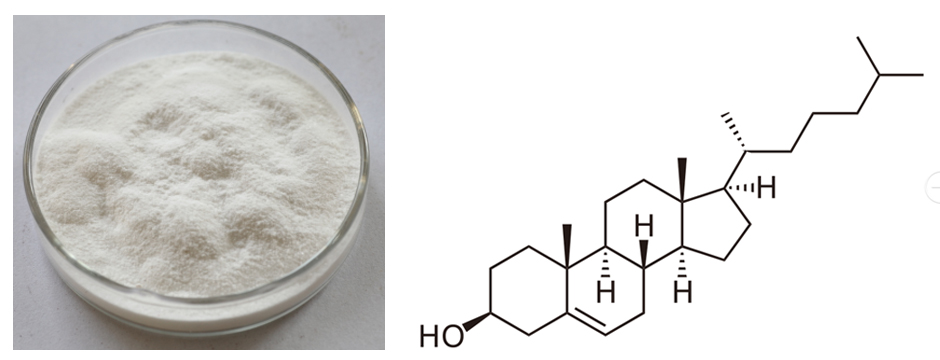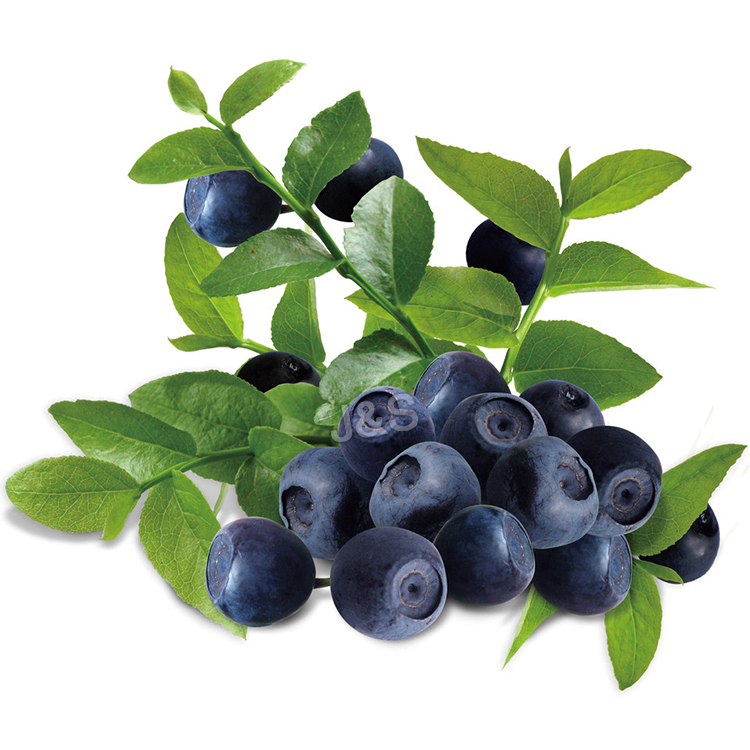Best quality and factory Phytosterol Factory in Angola
Best quality and factory Phytosterol Factory in Angola Detail:
[Latin Name] Glycine max(L.) Mere
[Specification] 90%; 95%
[Appearance] White powder
[Melting point] 134-142℃
[Particle size] 80Mesh
[Loss on drying] ≤2.0%
[Heavy Metal] ≤10PPM
[Storage] Store in cool & dry area, keep away from the direct light and heat.
[Shelf life] 24 Months
[Package] Packed in paper-drums and two plastic-bags inside.
[Net weight] 25kgs/drum
[What is Phytosterol?]
Phytosterols are compounds found in plants that resemble cholesterol. The National Institutes of Heath report that there are over 200 different phytosterols, and the highest concentrations of phytosterols are found naturally in vegetable oils, beans and nuts. Their benefits are so recognized that foods are being fortified with phytosterols. At the supermarket, you may see orange juice or margarine advertising phytosterol contents. After reviewing the health benefits, you may want to add phytosterol-rich foods to your diet.
[Benefits]
Cholesterol-Lowering Benefits
The most well-known, and scientifically proven, benefit of phytosterols is their ability to help lower cholesterol. A phytosterol is a plant compound that is similar to cholesterol. A study in the 2002 issue of “Annual Review of Nutrition” explains that phytosterols actually compete for absorption with cholesterol in the digestive tract. While they prevent the absorption of regular dietary cholesterol, they themselves are not easily absorbed, which leads to a total lower cholesterol level. The cholesterol-lowering benefit does not end with a good number on your blood work report. Having lower cholesterol leads to other benefits, such as a reduced risk for heart disease, stroke and heart attacks.
Cancer Protection Benefits
Phytosterols have also been found to help protect against the development of cancer. The July 2009 issue of the” European Journal of Clinical Nutrition” offers encouraging news in the fight against cancer. Researchers at the University of Manitoba in Canada report that there is evidence that phytosterols help prevent ovarian, breast, stomach and lung cancer. Phytosterols do this by preventing the production of cancer cells, stopping the growth and spread of cells that are already in existence and actually encouraging the death of cancer cells. Their high anti-oxidant levels are believed to be one way phytosterols help fight cancer. An anti-oxidant is a compound that fights free radical damage, which is negative effects on the body produced by cells that are unhealthy.
Skin Protection Benefits
A lesser known benefit of phytosterols involves skin care. One of the contributing factors in the aging of the skin is the breakdown and loss of collagen — the main component in connective skin tissue — and sun exposure is a major contributor to the problem. As the body ages, it is not able to produce collagen as it once did. The German medical journal “Der Hautarzt” reports a study in which various topical preparations were tested on skin for 10 days. The topical treatment that showed anti-aging benefits to the skin was the one that contained phytosterols and other natural fats. It is reported that phytosterols not only stopped the slow-down of collagen production that can be caused by the sun, it actually encouraged new collagen production.
Product detail pictures:

Related Product Guide:
We goal to understand excellent disfigurement from the manufacturing and supply the top support to domestic and abroad clients wholeheartedly for Best quality and factory Phytosterol Factory in Angola , The product will supply to all over the world, such as: Qatar, Tanzania, New Zealand, Our company sticks to the principle of "high quality, reasonable price and timely delivery". We sincerely hope to establish good cooperative relationships with our new and old business partners from all parts of the world. We hope to work with you and serve you with our excellent goods and services. Welcome to join us!
Top 10 Natural Sweeteners & Sugar Alternatives
The average American is taking in 400 calories a day from added sugars! And while the consumption of refined sugar is on the rise, so are artificial sweeteners. Artificial sweeteners like aspartame, sucralose (Splenda), ACE K and saccharin have been debated for years in regard to their damaging side effects. (1)
While all of these sweeteners are technically “safe,” according to the FDA, they are coming under increased scrutiny because of their side effects. Side effects from artificial sweeteners range from headaches and migraines to shrunken thymus glands, impairment of liver and kidney function, and mood disorders.
Refined sugars aren’t healthy either. Side effects of refined sugars include diabetes, tooth decay, obesity, heart disease, certain types of cancer and even poor cognitive functioning.(2) (3) (4)
Over the last few years, corn growers and affiliated associations have pushed high fructose corn syrup as a natural sweetener. This is simply not true. The vast majority of HFCS is produced from genetically modified corn.
Fructose is a simple sugar that is rapidly metabolized by the liver causing a “sugar high.” This quick-acting sugar is believed to lead to increased storage of fat in the liver, resulting in non-alcoholic fatty liver disease, digestive upset and atherosclerosis. (5)
Fortunately, there are natural sweeteners that are healthy and tasty alternatives to refined sugar, high fructose corn syrup, and artificial sweeteners. According to a study in the Journal of the American Dietetic Association, substituting healthy sweeteners — including blackstrap molasses, maple syrup and honey — can increase the antioxidant intake. (6)
This study shows that replacing 130 grams a day of refined sugars (the average intake) with healthy alternative natural sweeteners can increase the amount of antioxidants you consume each day, in amounts similar to that of consuming berries and nuts.
Top 10 Natural Sweeteners
Raw Honey (1 tablespoon – 64 calories)
Stevia (0 calories)
Dates (1 Medjool Date – 66 calories)
Coconut Sugar (1 tablespoon – 45 calories)
Maple Syrup (1 tablespoon – 52 calories)
Blackstrap Molasses (1 tablespoon – 47 calories)
Balsamic Glaze (1 tablespoon – 20-40 calories depending on thickness)
Banana Puree (1 cup – 200 calories)
Brown Rice Syrup (1 tablespoon – 55 calories)
Real Fruit Jam (varies depending on fruit)
1. Raw Honey
Raw honey is a true superfood and one of my favorite natural sweeteners. It’s packed with enzymes, antioxidants, iron, zinc, potassium, calcium, phosphorous, vitamin B6, riboflavin and niacin. Together, these essential nutrients help to neutralize free radicals while promoting the growth of healthy bacteria in the digestive tract.
One tablespoon of raw honey has 64 calories and has less impact on glycemic load than a single banana. It’s important to note that these are the benefits of raw honey. Once honey has been pasteurized, it loses the many of the health benefits that raw honey brings to the table.
Look for local raw honey at farmer markets and directly from local beekeepers. The darker the honey, the richer the flavor and the greater the health benefits.
How to use raw honey:
First, don’t cook with raw honey. Drizzle it on breakfast cereals, over your sprouted grain toast, on yogurt and for salad dressings.
You want to maintain as many of the nutrients in honey as possible, so keep it away from the heat. If you enjoy honey in your tea or coffee, wait until the drink is just tepid enough to sip comfortably, and then add honey to taste.
2. Stevia
Stevia is native to South America and has been used for hundreds of years in that region to support healthy blood sugar levels and prompt weight loss.
Today, stevioside, the element in the leaves that makes it more than 200 times as sweet as sugar, is available in liquid drops, packets, dissolvable tablets and baking blends. It has zero calories, zero carbohydrates and none of the nasty side effects of artificial sweeteners, making it an ideal natural sweetener.
Stevia is related to the sunflower, and some people experience a slight metallic aftertaste. If that has been your experience with stevia in the past, try a brand that is higher in the steviosides. Many find it to be sweeter, without a residual aftertaste.
How to use stevia:
Unlike raw honey, stevia is heat stable, so feel free to use it in any way you desire. Remember, it’s 200 times sweeter than sugar, so don’t use it in the same ratio.
For baking, this can present a problem, as refined sugar gives bulk to recipes. However, this can be easily rectified. To make up for the lost bulk when using stevia, use 1/3 to ½ cup of one of the following bulking agents: fresh fruit puree, yogurt, roasted winter squash, two whipped egg whites, or you can use 1–2 tablespoons of coconut flour.
Learn how to say words in English correctly with Emma Saying free pronunciation tutorials. Over 140,000 words were already uploaded… Check them out!
Visit my homepage:
https://www.emmasaying.com
~
We have worked with many companies, but this time is the best,detailed explanation, timely delivery and quality qualified, nice!







